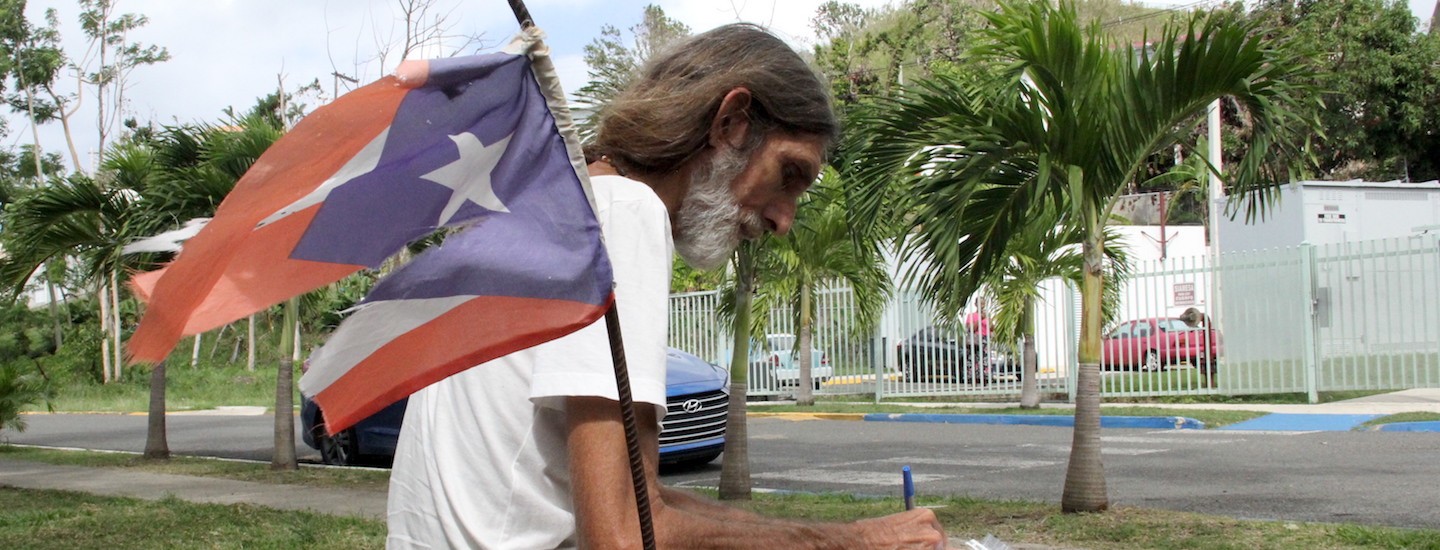
Over the last decade, the Surfrider Foundation Rincón Chapter’s Blue Water Task Force (BWTF) has built an incredible reputation for providing credible and consistent water quality information. Since Hurricanes Maria and Irma pummeled the Caribbean last fall, the chapter’s efforts have raised the bar even higher for a small group of volunteers taking charge to protect public health and clean water.
After Hurricane Maria hit Puerto Rico, the almost complete absence of government-run water quality testing programs was a rallying call-to-action for the Rincón BWTF. Although chapter volunteers were experiencing the same difficult post-storm conditions as the rest of the island, they were able to restart their water quality monitoring program by partnering with other local groups to empower communities to generate their own water quality information and protect their health.
Because of electrical shortages and interruptions in water treatment in post-storm conditions, Puerto Rico and other island nations in the Caribbean saw an increase in water-borne diseases and infections. Compounding the increased health risk is the fact that it took government agencies in Puerto Rico up to three months after Hurricane Maria landed to restart their water testing programs, which are still not operating at full capacity. Even today, there are far too many households without access to basic necessities such as clean drinking water and electricity.
To meet this critical need, the Rincón Chapter banded together with the Costa Salud Community Health Center and RBC Maria Relief to get their lab equipment, which requires electricity, back up and running. The chapter pulled its first water quality samples at the beach in mid-October, only three weeks after the hurricane hit. Bacteria levels at the beach have been predominantly safe since then, although there have been some localized pollution problems caused by failing and damaged sewage infrastructure and stormwater runoff.
The chapter also started testing streams, springs and other community sources of freshwater that were being used as drinking and household water. The volunteers are using EPA-approved methods to test for fecal indicator bacteria at sites located close to Rincón at the coast. In rural communities located further inland, more basic tests are being used that don’t require a lab facility with electricity. Through this work, the chapter has not only identified a number of sources of water that were not suitable for drinking or bathing, but they have also trained others to do the testing.

Additionally, Surfrider volunteers are talking to people in these communities about health issues from exposure to polluted water and are helping to direct the installation of water filtration systems to secure access to clean potable water during emergencies and power failures. For instance, BWTF test results from a freshwater spring located close to a school in the relatively impoverished neighborhood of Maricao revealed extremely high bacteria levels that were literally off the charts as they exceeded the maximum bacteria level our tests can measure. The Rincón Chapter has since gone back to this school with aid workers to talk to the teachers and students about health risks from contaminated water and to give a demonstration on proper use of water filters. The chapter is also working with a local teacher to build the capacity at the school to monitor important community sources of water. Stay current with Surfrider Foundation Rincón’s efforts to test new sources of water and train community volunteers on Facebook.

The neighboring island of St. John in the US Virgin Islands, also experienced severe devastation from Hurricanes Irma and Maria. To help protect the community from contaminated water, Surfrider coastal defenders partnered with a local organization, Love City Strong, to start a BWTF water quality testing program. This new program is monitoring water quality at public beaches and is providing critical information on the levels of bacteria in drinking sources across the island, including private rain cisterns. Volunteers have also secured donated Sawyer water filtration systems from Waves for Water and have provided training to island residents on their proper use and installation.
Visit the BWTF website to view a map of the regularly monitored sites in Puerto Rico and St. John.

